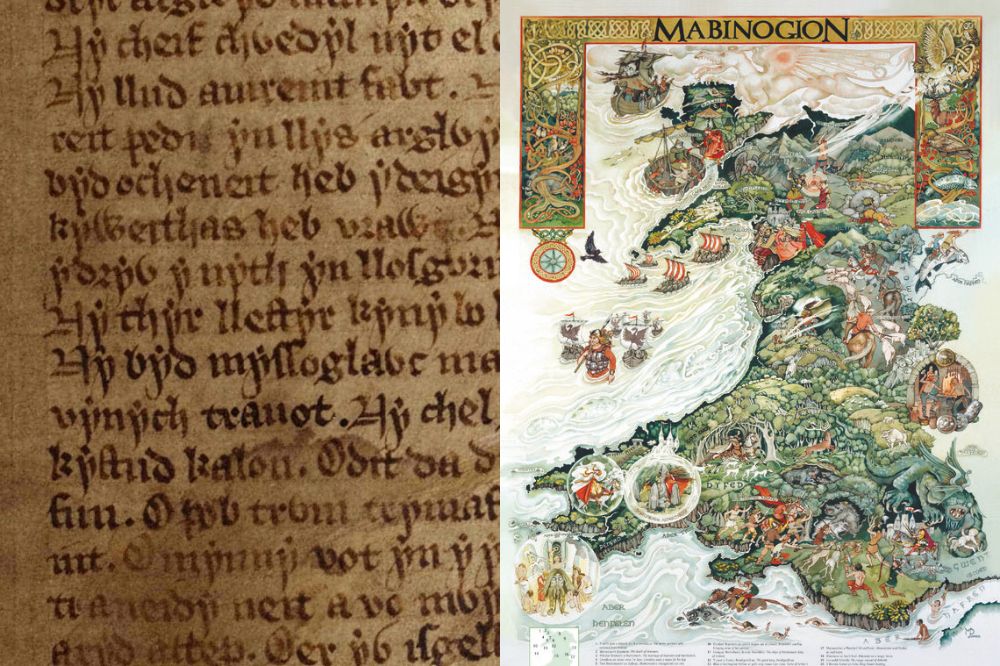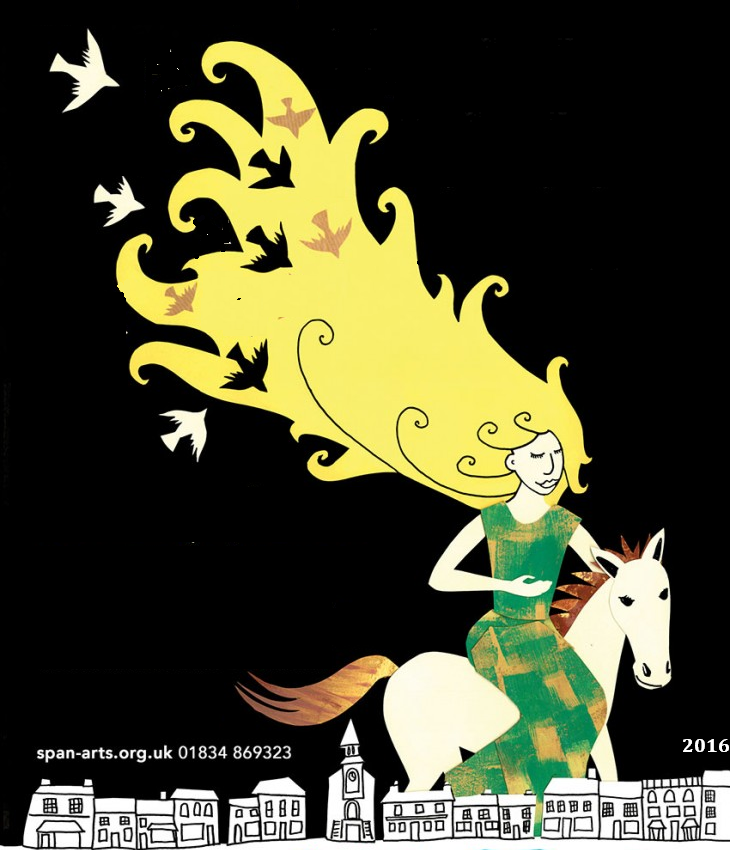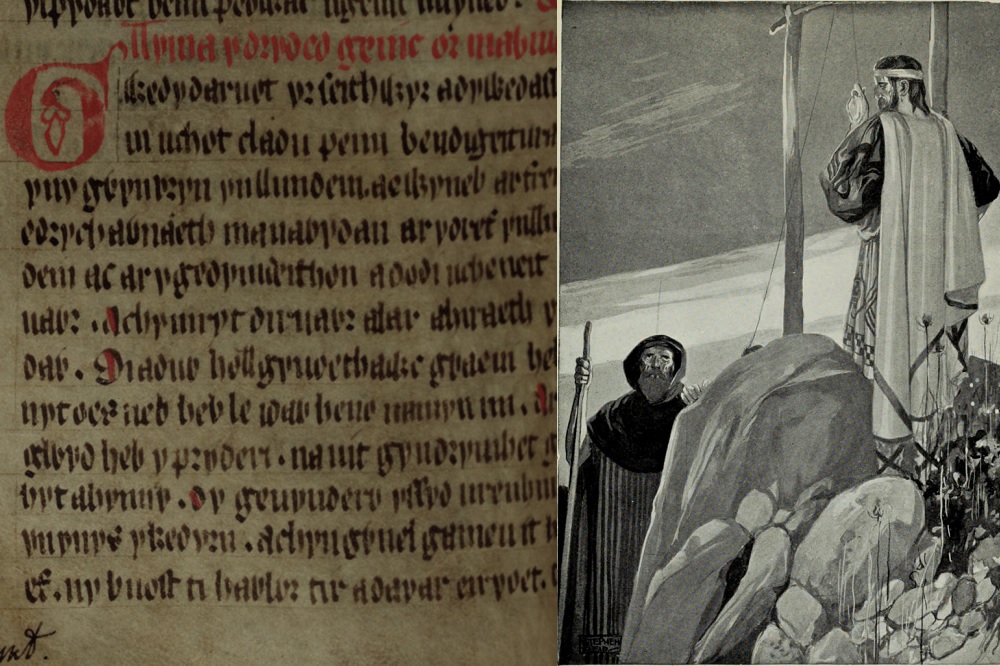The Magnificent Mabinogi 1: a pioneering work of genius

Dr Shân Morgain
In a new weekly Nation.Cymru series, Dr Shân Morgain will illuminate that most important of Welsh texts, the Mabinogi – sharing new insights from her research, including fascinating history, politics, psychology, mythology, arts and controversies.
Why is the Mabinogi a pioneering work of genius? Why has almost everyone in Wales or Welsh circles heard of it – but often recall little about it? Why, indeed, only Wales and Welsh circles? And how did it all begin?
As your guide to the Mabinogi, I am Dr Shân Morgain.
Fascinated by the Mabinogi after ten years in-depth research, completing with my doctorate. Before that lie decades as a priestess, but later for that.
I ‘married in’ in 1989, through my Pembrokeshire lad, John Davies, so it’s all his fault (you’ll get the full romance later).
He has helped particularly with the ‘dirty science’ of politics. Cat Etsaana has also done her part and Taliesin the shining son much deserves his mention too.
Genius
As a work of genius the Mabinogi fascinates fussy old scholars like me but equally entrances a five year old. Its action-packed stories pivot on passionate romances, speeded by magic and magicians. Then there are the Goddesses and Gods.
The Mabinogi is a massive pioneering monument from 1,000 years ago. It was the first time stories were told in prose, instead of poetry. Telling stories live needed great feats of memory so poetry helped with rhythm and rhyming.

Only when written manuscripts became more available could prose, natural storytelling, flourish. All our novels, stories, films and gaming today are descended from that huge revolution 1,000 years ago.
Another prose work Culhwch ac Olwen arrived almost the same time. It’s a series of adventures bolted together, good fun. But it’s not the sophisticated depth of the Mabinogi. Nor is the Mabinogi a boring (?) pioneer. Its tales are bursting with excitement.
Everyone knows it
Well yes, anyone educated in Welsh schools or linking into Welsh culture, will know the name.
But frequently those school years have floated into mists of the past.
Most really interesting Mabinogi talk is stuck behind high academic walls. Here I hope to open it up.
So if the Mabinogi is toweringly important, pioneering, creative and exciting, why is it hardly known outside Cymreig circles? You’d think it should be up there with Shakespeare, Chaucer, Homer and Pratchett. You’d be right.
The thing is there’s this place to the east got a bit big for its boots. The people there were conquered and crushed by the Normans (1066 and all that). ‘Normans’ were a big fake, a raggle-taggle of the scrapings of Europe, hungry for land and money.
Once arrived in the east William the Bastard (official name) had a problem with these hooligans, so he dumped the worst here (The March). They kicked up horribly but we gradually civilised them.
Norman fakery concocted themselves as ‘nobility’, and a ‘nationality’. Illiterate, crude, violent, sexist, and grubby, they were the nonetheless the bosses. Apart from brawn and violence they excelled in their bards with top-notch marketing. Snitching the Arthur legends was part of that, making him noble and moral.

We Cymry fought back, developing our lethal longbow which shafted through their armour (South Wales 1188). Before that came the culture wars, and the Mabinogi showcased our greatness against the flashy, lying Norman bards.
Over the centuries the eastern lot never let up on suppressing Cymry genius. Although we were far more cultured and sophisticated you’d never think so because guess who owned the printing presses? We’re now winning back our own.
The Mabinogi 1100
Before actually invading us William the Bastard made a ‘pilgrimage’ to Menevia/ St. David’s, a dazzling progress (psst. scouting expedition), with lots of bards in tow. Competitive performances each night along the way likely developed the Mabinogi (1088), definitely in full swing by 1100 after centuries of live (oral) performance.
Who composed its final form as we know it? Sadly, we cannot be sure. Sulien bishop of Menevia/ St. David’s or his family are candidates. Andrew Breeze suggests a noblewoman because of strong female views, perhaps even Gwenllian.
Whoever it was has excellent education. Myself I favour a family project, mother, father, others, to account for the family flavour and different points of view.
Survival
Mabinogi wonders survived in three manuscripts. There’s a couple of pages (Peniarth 6, 1225). Then complete versions appear Llyfr Gwyn Rhydderch/ the White Book of Rhydderch, shining star of our National Library (Aberystwyth), and Llyfr Coch Hergest/ the Red Book of Hergest (Oxford). Each link into 15thC politics (later …).
I will introduce William Owen Pughe (such a pet) who first published some Mabinogi; the real lowdown on Charlotte Guest, and hidden, naughty stories of other Mabinogi greats.
Next week I’ll offer you quick retellings of the actual stories, and help choosing a translation you might like for reading (some are free).
Fasten your seatbelts for hot conflicts in the tales, and around them, to liven up your Sundays.
‘Magnificent Mabinogi‘ series. 1) Genius (above) NEXT 2) The Stories
References
The ‘Magnificent Mabinogi’ title was first used by the playwright director Manon Eames for her famous staging, Aberystwyth Arts 2008; used here with her permission.
Andrew Breeze. 2009. Origins of the Four Branches of the Mabinogi (Gracewing Publishing)
Sioned Davies. 1993. The Four Branches of the Mabinogi: Pedeir Keinc y Mabinogi (Llandysul, Wales: Gomer Press). Out of print, libraries only.
Ifor Williams, ed. 1930. Repr. 1951, 1994 hardback, 1996 softback. Pedeir Keinc y Mabinogi, Allan o Lyfr Gwyn Rhydderch (PKM) (Cardiff: UWP). TITUS online text; Jost Gippert, Frankfurt a/M, 6.12.2005, view here.
Support our Nation today
For the price of a cup of coffee a month you can help us create an independent, not-for-profit, national news service for the people of Wales, by the people of Wales.






Great idea for a series…..looking fowar to next week!!!
Dai Rob thank you. I have lots coming all through the winter months – the ancient Celtic season of storytelling runs from October to February so let’s see if I can match it. 🙂
A series I look forwards to 🙂
Thank you Imrix.
Really looking forward to it. I’ve seen translations into English, but are there any translations into modern Welsh?
Yes I think so. I’ll try and check. Might not get info for next week though.
There’s Ifans & Ifans eds. Gomer Press but very rare virtually out of print so costly. Could get via libraries.
Thank you!
Feels like a shame that for those of us who can speak Welsh but who didn’t study Welsh literature at A level or University the most accessible way to access the Mabinogi is through the medium of English!
Very much agree Sion. I’ll tickle Gomer about a reprint – anyone else can too as if they see interest they’re more likely to do it.
I’d also like to see a recording so we could listen to Middle Welsh because it was after all a performance art only much later written for reading.
Excellent. I am on a similar quest and would appreciate connecting to you so I can share my work and findings so far.
Lewis always happy to discuss ideas. I’m mabinogishan AT gmail / com